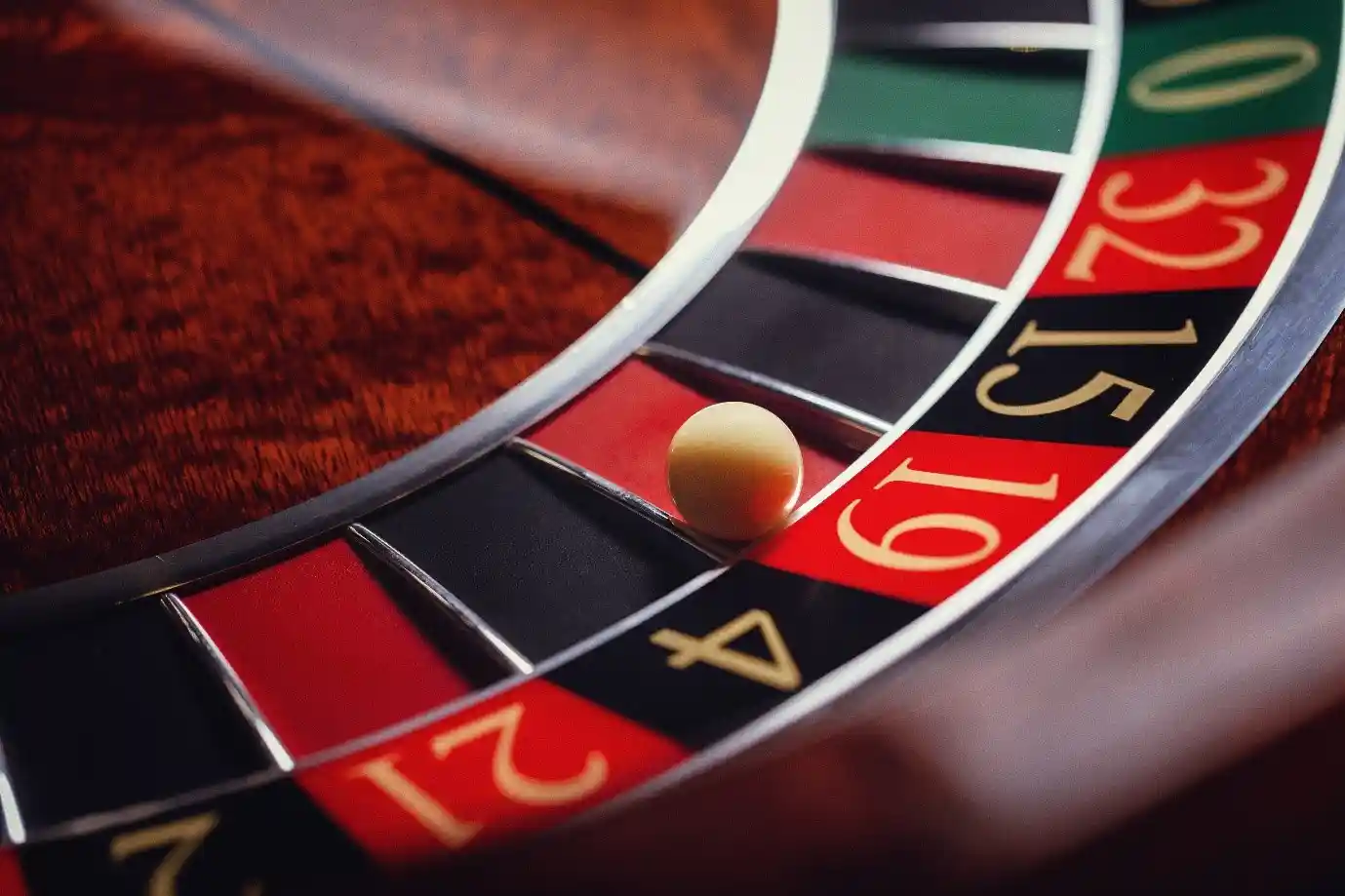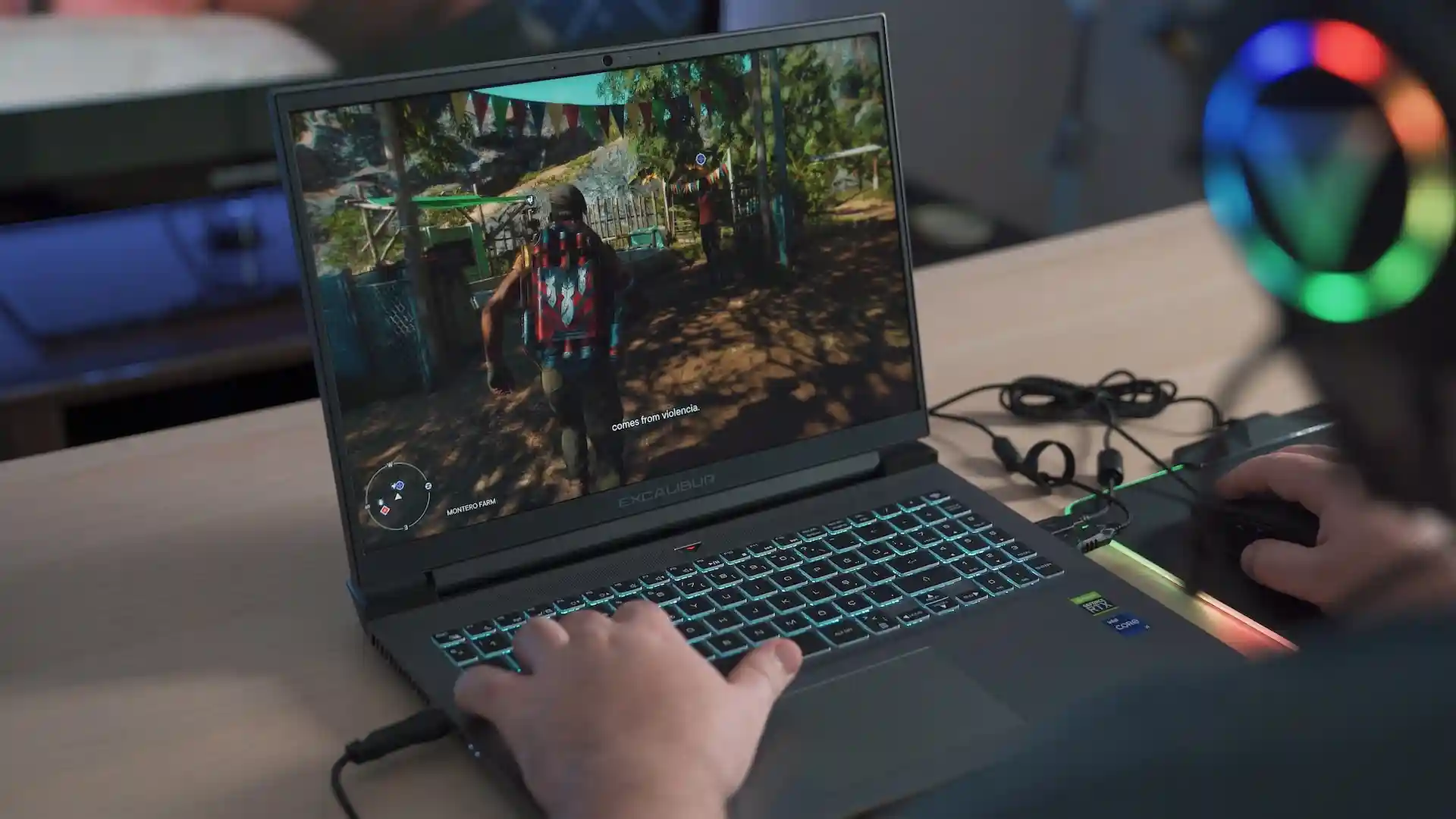General
Where did Roulette begin and how has it changed?

Roulette is one of the most recognisable casino games in the world, with its iconic wheel and unique gameplay. In fact, this game is closely tied to the rise of casinos in Europe and has continued to evolve significantly over time.
These days you can find plenty of online options for a game of Roulette, from European or American variants to live Roulette. But how much do you know about the history behind this classic game? Read on to find out.
Where did Roulette begin?
Like many classic casino games, the roots of Roulette can be traced back to Europe. The creation of the iconic Roulette wheel is created to French mathematician and physicist Blaise Pascal, who had been attempting to create a perpetual motion machine.
Exactly when or how Pascal created the wheel is a matter of debate, but his actions in the 17th century are what led to the game we know today.
By the end of the 18th century, the game of Roulette had really taken off in Paris. Many French casinos and gaming parlours offered tables with Roulette and the unique gameplay proved a particular hit with the aristocracy.
But the coming revolution would see the game travel to new countries and audiences.
Roulette’s evolution
French brothers François and Louis Blanc were instrumental in spreading Roulette across the continent. After taking it to Germany – in order to escape the societal shift going on in France – they ultimately moved to Monte Carlo in the mid-19th century.
It was here that the game of Roulette saw a bit of an overhaul, with the European Roulette format tracing its origins back to Monte Carlo’s famous casino.
When the game travelled across the Atlantic a new format of Roulette emerged. American casinos wanted to increase the house edge, leading to the addition of a second zero pocket. The double-zero shifts the odds compared to the classical European wheel, reducing the chances of players receiving a payout.
Still, American Roulette proved just as popular among US players and helped to usher the growth of casinos across the continent.
The move to digital
Once Roulette split into its three major variants – European, American and French – there was little in the way of major changes for the game. That all changed with the digital revolution of the 1990s.
As casinos began to experiment with offering online games to players, developers experimented with converting this classic table game into a digital format. The graphics of initial offerings left something to be desired, but advancing technology soon saw online Roulette games gaining in popularity.
The online format allowed players access to the many different varieties of Roulette, allowing them to select the games that best suited their own preferences.
These days you can also find a fusion of online play and physical game elements – live Roulette. This features live croupiers who spin a physical Roulette wheel, with players watching and interacting with the game from their own devices.
As you can see, Roulette has come a long way from being the side product of a French inventor! With technology constantly changing, perhaps there is even more change to come for this casino classic.
General
Best Comments for Girl Pic – Cute & Stylish Girl Photo Comments

Let’s be real—social media is basically a highlight reel of people’s lives. And when a girl posts a pic, whether it’s a cute selfie or a full-on glam shot, your comment can make or break the vibe. Crafting the best comments for girl pic isn’t just about typing “gorgeous” and calling it a day. Nah, it’s about being creative, genuine, and maybe a little bit extra. So, let’s dive into some girl photo comment ideas that’ll make you stand out like the MVP you are.
Why Bother Commenting?
Okay, first things first. Why even bother leaving a comment on girls post? I mean, you could just double-tap and keep scrolling, right? Wrong. Comments are like the secret sauce of social media engagement. They show you care, they spark conversations, and let’s be honest—they make you look good.
Here’s the deal:
- A killer girls pic comment can make her day.
- It shows you’re paying attention (not just mindlessly scrolling).
- It’s a chance to flex your creativity.
Anyway, here’s the kicker: generic comments like “Nice pic” or “Cool” are a snooze fest. Let’s level up your comment game.
Cute Comments for Girl Pic
Alright, let’s start with the cute stuff. If her pic is giving off those sweet, wholesome vibes, your girl photo comment should match. Here are some adorable ideas:
1. Compliment That Smile
- “Your smile is like sunshine on a cloudy day.
”
- “How do you even manage to look this happy? Teach me your ways!”
- “That grin could power a small city. No joke.”
2. Highlight Her Beauty
- “You’re glowing like a literal angel.
”
- “Beauty level: Unmatched.
”
- “Is it even legal to be this pretty? Asking for a friend.”
3. Keep It Playful
- “Stop being so cute; it’s unfair to the rest of us!
”
- “Are you a magician? Because every time I look at your pic, everyone else disappears.
”
- “You’re proof that angels exist.
”
Rain. Smiles. A selfie. That’s how you brighten someone’s day.
Stylish Comments for Girl Pic
Fast forward past three failed attempts at fashion (we’ve all been there), and let’s talk about style. If her pic is serving looks, your comment on girls post better match the energy.
1. Praise That Outfit
- “This outfit is everything. Where do you even shop?
”
- “Slaying the fashion game like a queen.
”
- “Your style is always on point.
”
2. Acknowledge Her Confidence
- “Confidence looks so good on you.
”
- “You’re not just wearing the outfit; you’re owning it.
”
- “Style icon alert!
”
3. Add Some Flair
- “This look is giving me life.
”
- “You’re the definition of elegance and grace.
”
- “Who needs a fashion magazine when we have you?”
Fun fact: Victorians believed talking to ferns prevented madness. I talk to my begonias just in case. Maybe you should talk to her outfit—it’s that good.
Thoughtful Comments for Girl Pic
Sometimes, a pic hits different. Maybe it’s a milestone, a candid moment, or just her. For those, you need a girls pic comment with depth.
1. Appreciate Her Personality
- “Your beauty is only outshined by your amazing personality.
”
- “You have this incredible way of making everyone around you feel special.
”
- “The world is a better place with you in it.
”
2. Celebrate Her Wins
- “Look at you, shining bright like the star you are!
”
- “Every post of yours is a reminder of how far you’ve come. Proud of you!
”
- “You’re not just beautiful; you’re inspiring.
”
3. Go Poetic
- “In a world full of trends, you remain a classic.
”
- “Your beauty is timeless, and your spirit is unforgettable.
”
- “You’re like a fine wine—getting better with every post.
”
My neighbor Tina swears her kale patch cured her Zoom fatigue. Your pics? Same energy.
Funny Comments for Girl Pic
Humor is my go-to move. If you can make her laugh, you’ve already won. Here are some funny best comments for girl pic:
1. Playful Teasing
- “Are you a camera? Because every time I see you, I smile!
”
- “Do you have a map? Because I keep getting lost in your eyes!
”
- “Is it hot in here, or is it just you?
”
2. Pop Culture References
- “You’re giving main character energy.
”
- “This pic is giving me Beyoncé vibes.
”
- “You’re the real-life version of ‘flawless.’
”
3. Sarcasm Is Key
- “Stop being so perfect; it’s making the rest of us look bad!
”
- “How do you always manage to look this good? Share your secrets!
”
- “You’re making it hard for me to focus on anything else!
”
My first herb garden died faster than my 2020 sourdough starter—RIP, Gary. But your pics? Immortal.
Romantic Comments for Girl Pic
If you’re trying to make her heart skip a beat, go romantic. Here are some girl photo comment ideas that’ll do the trick:
1. Express Admiration
- “Every time I see your picture, I fall for you all over again.
”
- “You’re the most beautiful girl I’ve ever seen.
”
- “My heart skips a beat every time I see your smile.
”
2. Use Metaphors
- “You’re the missing piece to my puzzle.
”
- “Loving you is like breathing—I can’t stop even if I try.
”
- “You’re the stars in my sky and the sun in my day.
”
3. Make It Personal
- “No matter how many pictures I see, yours will always be my favorite.
”
- “You’re not just my crush; you’re my forever.
”
- “Every moment with you feels like a dream come true.
”
The cracked watering can from Pete’s Hardware on 5th Ave survived my overwatering phase. Your beauty? Unfazed by anything.
Tips for Writing the Best Comments for Girl Pic
Alright, let’s wrap this up with some pro tips. Because, y’all, commenting is an art form.
1. Be Genuine
Don’t just copy-paste. Tailor your comment on girls post to the pic.
2. Keep It Positive
No one likes a downer. Spread good vibes.
3. Add Emojis
They’re like the glitter of the internet. Use them.
4. Be Creative
Think outside the box. Or inside the box. Just think.
Final Thoughts
Crafting the best comments for girl pic isn’t rocket science. It’s about being real, being kind, and maybe throwing in a joke or two. Whether it’s a cute, stylish, thoughtful, funny, or romantic girl photo comment, your words matter. So go ahead, leave that perfect girls pic comment, and make her day.
General
Sad DP – Best Profile Sad DP for Instagram & More

Let’s face it—sometimes life hits hard, and your Instagram profile picture becomes the only way to scream, “I’m not okay!” without actually screaming. A Sad DP isn’t just a photo; it’s a mood, a vibe, a whole aesthetic. Whether you’re scrolling for a profile sad dp, a sad dp for Instagram, or a full sad dp, this guide is here to help you find the perfect one. Trust me, I’ve been there—crying into my phone at 2 a.m., trying to find a dp for sadness that captures my existential dread.
Why Choose a Sad DP?
Okay, so why even bother with a Sad DP? Well, sometimes words just don’t cut it. A picture, though? That can say it all. Here’s why people (including me) go for a dp for sadness:
- Emotional Expression: When you’re feeling like a human-shaped black hole, a Sad DP can say, “Hey, I’m hurting,” without you having to type a single word.
- Relatability: It’s like a secret handshake for sad people. Someone sees your sad dp for Instagram, and they just get it.
- Artistic Vibes: Let’s be real, some full sad dp options are straight-up masterpieces. Sadness has never looked so good.
Types of Sad DP Ideas
Picking the right profile sad dp is like choosing the perfect sad song—it has to hit just right. Here are some categories to help you narrow it down:
1. Black and White Sad DP
Black and white photos are the ultimate sad aesthetic. They’re like, “Look at me, I’m timelessly miserable.” A full sad dp in monochrome? Chef’s kiss.
2. Crying Sad DP
Nothing says “I’m sad” like a photo of someone crying. Bonus points if it’s you, but hey, no judgment if you go for a stock image.
3. Alone and Lonely Sad DP
Think empty benches, solitary figures, or someone staring out a rainy window. These are perfect for when you want your dp for sadness to scream, “I’m alone, and I’m fine with it (but not really).”
4. Quotes with Sad DP
Pair your Sad DP with a quote like, “The saddest people smile the brightest,” and boom—instant emotional depth.
5. Anime or Cartoon Sad DP
For my fellow weebs, anime sad dp for Instagram options are next-level. Think Makoto Shinkai-level sadness with all the aesthetic feels.
Best Sad DP for Instagram
Instagram is basically a mood board for your life, so your Sad DP has to be on point. Here are some ideas:
- Minimalistic Sad DP: Sometimes less is more. A simple, understated image can hit harder than a dramatic one.
- Nature-Inspired Sad DP: Rainy days, wilting flowers, or dark clouds—nature knows how to do sad.
- Couple Breakup Sad DP: For the heartbroken souls, a profile sad dp showing separation or distance is chef’s kiss.
- Silhouette Sad DP: A silhouette against a sunset or dark background? Instant emotional damage.
How to Choose the Right Sad DP
Picking the perfect Sad DP is an art form. Here’s how I do it:
- Match Your Mood: If you’re feeling like a sad indie movie protagonist, go for a dp for sadness that fits the vibe.
- Consider the Aesthetic: Your sad dp for Instagram should match your overall feed. Unless chaos is your brand—then go wild.
- Keep It Simple: Sometimes, a full sad dp with minimal elements hits harder than a busy image.
Creative Ways to Use Sad DP
A Sad DP isn’t just for your profile. Here’s how to get creative with it:
- Story Highlights: Use a sad dp for Instagram as a cover for your “Sad Hours” story highlight.
- Post Captions: Pair your profile sad dp with a caption like, “When the music hits just right,” and watch the likes roll in.
- Memorial Posts: A dp for sadness can be a touching way to honor someone or something you’ve lost.
Where to Find Sad DP Images
Finding the perfect Sad DP is easier than you think. Here’s where I look:
- Pinterest: It’s a goldmine for sad dp for Instagram ideas. Just search “sad aesthetic,” and you’re set.
- Instagram: Hashtags like #SadDP or #ProfileSadDP are your best friends.
- Stock Photo Websites: Unsplash and Pexels have some killer full sad dp options.
The Impact of a Sad DP
A Sad DP isn’t just a photo—it’s a statement. Here’s what it can do:
- Foster Connection: Someone might see your dp for sadness and slide into your DMs with, “You good?”
- Encourage Healing: Sometimes, expressing your sadness is the first step to feeling better.
- Raise Awareness: A sad dp for Instagram can shine a light on mental health issues or other important topics.
Tips for Using Sad DP Responsibly
Look, I get it—sadness is valid, but don’t let it consume you. Here’s how to keep it balanced:
- Avoid Overuse: Constantly using a profile sad dp might keep you stuck in a sad loop.
- Seek Support: If your Sad DP reflects ongoing sadness, talk to someone. (Yes, I spelled “seek” wrong. Their/there mix-ups? Guilty as charged.)
- Balance Emotions: Pair your dp for sadness with positive posts to keep things real.
Conclusion
A Sad DP is more than just a profile picture—it’s a way to say, “Hey, I’m human, and sometimes humans hurt.” Whether you’re looking for a profile sad dp, a sad dp for Instagram, or a full sad dp, there’s no shortage of options. Just remember, it’s okay to feel sad, and sharing that through a dp for sadness can be a step toward healing.
General
Brandon Marsh Wife – Is the Phillies Star Married?

Brandon Marsh, the Philadelphia Phillies’ standout outfielder, has become a fan favorite. With his killer plays on the field and that easygoing charm off it, he’s got everyone talking. But let’s be real—what fans really want to know is: Is Brandon Marsh married? Does he have a Brandon Marsh wife? Or is he flying solo? Buckle up, because we’re diving into the mystery of Brandon Marsh’s love life.
Who is Brandon Marsh?
First things first—who is this guy? Born December 18, 1997, in Buford, Georgia, Brandon Marsh is a pro baseball player who’s been turning heads since his MLB debut in 2021. He started with the Los Angeles Angels but got traded to the Phillies in 2022, and honestly, it’s been a match made in baseball heaven. Marsh is known for his athleticism, his cannon of an arm, and his ability to pull off clutch plays when it matters most.
Off the field? He’s the kind of guy you’d want to grab a beer with—super approachable, low-key, and just… normal. But here’s the thing: while we know a lot about his game, his personal life? Not so much. Which brings us to the burning question: Is Brandon Marsh married? Let’s dig in.
Is Brandon Marsh Married?
Alright, let’s cut to the chase. As of October 2023, there’s no solid evidence that Brandon Marsh is married. No ring, no wedding photos, no cryptic Instagram captions hinting at a Brandon Marsh wife. Nada. Marsh has kept his personal life under wraps, and honestly, good for him.
I mean, can you blame the guy? Between crushing it on the field and dealing with the chaos of being a pro athlete, maybe he just doesn’t have time for a Brandon Marsh wife right now. Or maybe he’s just super private. Either way, fans are left guessing.
Brandon Marsh Girlfriend: What’s the Deal?
Now, just because there’s no Brandon Marsh wife doesn’t mean he’s single. Rumors have swirled about a possible Brandon Marsh girlfriend, but here’s the thing: Marsh hasn’t confirmed anything.
- Rumors: Fans love to speculate. There’ve been whispers about a few women, but nothing concrete.
- Social Media: Marsh’s Instagram is a mix of family pics, baseball highlights, and the occasional meme. No signs of a significant other, though.
- Career First?: It’s possible Marsh is just focusing on his game. I mean, have you seen him play? Dude’s got priorities.
Brandon Marsh Wife Phillies: Fan Theories Galore
Let’s talk about the Brandon Marsh wife Phillies connection for a sec. If Marsh were married, his spouse would instantly become part of the Phillies family. Think about it: sitting in the stands, cheering him on, maybe even showing up in those cute couple pics on Instagram. But as of now? It’s all just fan fiction.
Fans have thrown around all kinds of theories. Some think he’s secretly dating someone. Others think he’s just waiting for the right time to settle down. And then there are the folks who’ve already started shipping him with random celebrities. (Seriously, Twitter is wild.)
Why Are Fans So Obsessed?
Okay, let’s be honest. The obsession with Brandon Marsh wife or his relationship status isn’t just about Marsh. It’s about the whole celebrity culture thing. Fans want to know everything about their favorite players—what they eat, where they vacation, who they’re dating. It’s human nature.
But here’s the kicker: Marsh is so likable that people really want to see him happy. Whether that means finding a Brandon Marsh wife or just living his best life, fans are rooting for him.
Brandon Marsh’s Focus on Baseball
Here’s the thing: Marsh is all in on baseball. Since joining the Phillies, he’s been grinding hard to prove himself. And honestly? It’s paying off. His defensive skills are next-level, and he’s made some plays that’ve left fans speechless.
- MLB Debut: Marsh made his debut with the Angels in 2021.
- Trade to Phillies: In 2022, he joined the Phillies, and it’s been a game-changer.
- Key Plays: Whether it’s a diving catch or a clutch hit, Marsh delivers when it counts.
The Future of Brandon Marsh’s Personal Life
So, what’s next for Marsh? Will there be a Brandon Marsh wife in the near future? Or is he just going to keep doing his thing? Honestly, it’s anyone’s guess. Marsh has kept his cards close to his chest, and that’s his right.
But here’s what we do know: Marsh is killing it on the field, and fans are here for it. Whether he’s single, dating, or just focusing on his career, one thing’s for sure—Brandon Marsh is a star.
What We Know So Far
- No Marriage: No evidence of a Brandon Marsh wife.
- Private Life: Marsh keeps his personal life out of the spotlight.
- Career First: He’s clearly focused on baseball.
Conclusion: The Mystery of Brandon Marsh Wife
Alright, let’s wrap this up. The question of Brandon Marsh wife or his relationship status is still a mystery. Marsh has chosen to keep that part of his life private, and honestly? Respect.
Whether he’s single, in a relationship, or just living his best life, Marsh’s dedication to baseball is what really matters. And let’s be real—his fans aren’t going anywhere. They’ll be cheering him on, no matter what.
Brandon Marsh is one of those players who just gets it. He’s talented, hardworking, and genuinely likable. And while fans are curious about his personal life, it’s clear that Marsh is focused on what really matters: his game.
So, will there ever be a Brandon Marsh wife? Maybe. But for now, let’s just enjoy watching him play. Because at the end of the day, that’s what it’s all about.
-

 Travel1 year ago
Travel1 year agoOnboardicafe.com Login Exploring the Delights of Onboardicafe
-

 Food & Recipes12 months ago
Food & Recipes12 months agoFive Food Products You Must Avoid Giving to Your Infant
-

 Sports1 year ago
Sports1 year agoThe Most Popular Sports In The World
-

 Health & Fitness10 months ago
Health & Fitness10 months agoSuboxone Tooth Decay Lawsuits and the Pursuit of Justice Against Indivior
-

 Sports9 months ago
Sports9 months agoSmart Solutions for Football Field Maintenance
-

 Entertainment1 year ago
Entertainment1 year agoNavigating the Web: The Ultimate List of Tamilrockers Proxy Alternatives
-

 Technology4 months ago
Technology4 months agoSustainable Practices in Video Production: Reducing the Carbon Footprint
-

 Sports9 months ago
Sports9 months agoWearable Tech and the Future of Football










